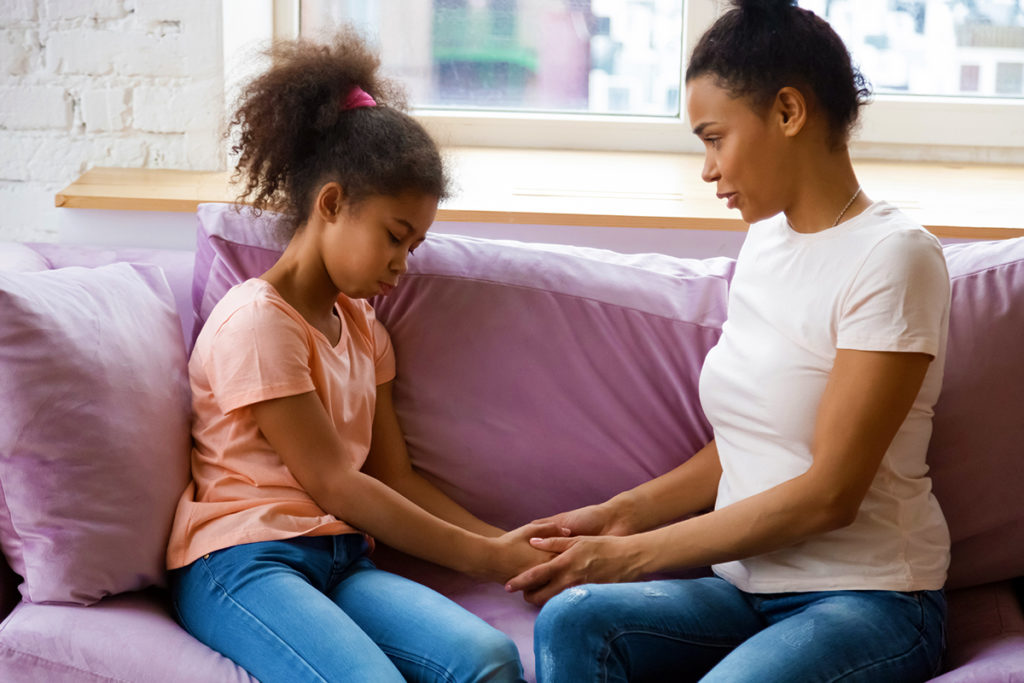
“How to tell your children about your divorce?” is one of the toughest questions parents will ever face.
When I was a little girl, I walked in from the yard into my grandparents’ kitchen and overheard one of them say, “Maybe we should get a divorce.” I was lucky – it was my grandparents, not my parents, so even if they got a divorce, I was able to go home each night to an intact family unit. But nonetheless, because I spent every day with my grandparents while my parents were at work, it had a lasting effect on me. I don’t think it’s any accident that I ended up in family law (even though that was never my plan when I went to law school or for my first years out). Walking in on that discussion has informed my whole life, personally and professionally.
I believe, as a result of walking in on that conversation, I have spent my professional career trying to help children of divorced families have a different experience than I had that day when I walked in on my grandparents. I have spent my professional career trying help parents who divorce know that they have a choice on how to handle their divorce and how they tell their children, and that making the right choices in those decisions can determine their children’s future.
Careful planning of how you tell your children you are getting a divorce may be the most important gift you ever give them.
My poor grandparents did a great job of handling their divorce and their post-divorce relationship in way that least adversely affected me, but they could have handled the part that did adverse affect me better if they had only known how. Thankfully, with over a half a century of thoughtful work by family lawyers and therapists, you, as parents, have the information now available to you, to tell your children about your divorce in a way that will hopefully not be harmful to them.
Carolyn Hax, a writer for the Washington Post, tackled the question of how and when to tell the children about the divorce. With the Coronavirus and couples/families sometimes in separate locations for long periods of time, this question has become more complicated. Ideally, both parents should be in the same location with the child when they deliver the news.
One of my colleagues in the mental health profession, Robin Watts, did one of the best pieces on this subject for our Collaborative Divorce Denton County practice group several years ago. Her article is timeless, so I commend it to your reading now if you are in the position of telling your children about your divorce.
Here are some suggestions that Robin has for making the difficult conversation easier on everyone:
- Pick the right time
- Break the news together
- Be straightforward and keep it simple
- Avoid over-sharing and blaming
- Reassure your children that the divorce is not their fault
In my opinion, the parents and the children will benefit greatly if, before the parents have their meeting with the children, the parents have met with a therapist who is also a child specialist and can help them work through not only how to tell the child, but help them develop a script in their own words. I would even suggest that the therapist help the parents work through some roles plays for circumstances they may not be able to handle well off the cuff because of the emotional stress of this moment.
Therapists can help parents be prepared by practicing and doing role plays with them, for “what if the child asks this ______?” or “what do we do if the child reacts like this __________?”, and “what do we do moving forward, once the information is delivered?” Life doesn’t just pause or stop there; how do we help our child know we still love them, that that will never change and that we will all be ok?
In the end, most counselors will tell you that it is not the divorce itself is the determining factor in how your children handle the divorce and its aftermath – most counselors will tell you that the children model their parents’ behavior – if the parents have a compassionate end to their marriage and they continue as a family and co-parent the child, most children do fine.
In fact, statistically, one child out of two will divorce in their lifetimes, so this is one of the parents’ teaching moments – demonstrate for your child how to peacefully resolve conflict and move forward constructively. The process you choose may also determine the outcome of your divorce. I recommend the Collaborative Divorce process for nearly everyone I work with because in the Collaborative process we are mindful and work with the family as a unit rather than unrelated pieces.












